Scientists closer to solving mysteries of universe after measuring gravity in quantum world
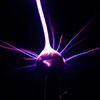 Physicists successfully detect weak gravitational pull on a tiny particle with new technique that uses levitating magnets.
Physicists successfully detect weak gravitational pull on a tiny particle with new technique that uses levitating magnets.
Feb 23rd, 2024
Read more
 Subscribe to our Space Exploration News feed
Subscribe to our Space Exploration News feed
 Physicists successfully detect weak gravitational pull on a tiny particle with new technique that uses levitating magnets.
Physicists successfully detect weak gravitational pull on a tiny particle with new technique that uses levitating magnets.
Feb 23rd, 2024
Read more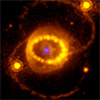 Scientists can finally show that a neutron star formed from our most well-studied supernova, SN 1987A. The breakthrough was made possible thanks to the James Webb telescope.
Scientists can finally show that a neutron star formed from our most well-studied supernova, SN 1987A. The breakthrough was made possible thanks to the James Webb telescope.
Feb 22nd, 2024
Read more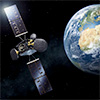 This emerging battleground highlights the urgent need for robust cybersecurity measures to protect our space assets from sophisticated attacks that threaten global stability and security.
This emerging battleground highlights the urgent need for robust cybersecurity measures to protect our space assets from sophisticated attacks that threaten global stability and security.
Feb 20th, 2024
Read more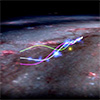 Astronomers report oscillation of our giant, gaseous neighbor.
Astronomers report oscillation of our giant, gaseous neighbor.
Feb 20th, 2024
Read more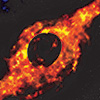 This is also the most luminous known object in the universe. It's 200 trillion times brighter than our sun.
This is also the most luminous known object in the universe. It's 200 trillion times brighter than our sun.
Feb 19th, 2024
Read more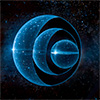 Theoretical physicists present a solution to the field equations of general relativity that describes the existence of a gravastar inside another gravastar.
Theoretical physicists present a solution to the field equations of general relativity that describes the existence of a gravastar inside another gravastar.
Feb 15th, 2024
Read more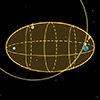 Researchers show that the SETI Ellipsoid method can leverage continuous, wide-field sky surveys, significantly enhancing our ability to detect these potential signals.
Researchers show that the SETI Ellipsoid method can leverage continuous, wide-field sky surveys, significantly enhancing our ability to detect these potential signals.
Feb 12th, 2024
Read more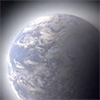 Simulations provide a potential explanation for the mysterious gap in the size distribution of super-Earths.
Simulations provide a potential explanation for the mysterious gap in the size distribution of super-Earths.
Feb 9th, 2024
Read more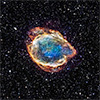 Astronomers have made a significant discovery by identifying a previously unknown source of dust in the universe: a Type Ia supernova interacting with gas from its surroundings.
Astronomers have made a significant discovery by identifying a previously unknown source of dust in the universe: a Type Ia supernova interacting with gas from its surroundings.
Feb 9th, 2024
Read more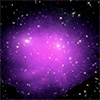 Astrophysicists enhanced the accuracy of measuring matter distribution in galaxy clusters, validating the Lambda-CDM theory on the universe's structure and evolution by combining observational data and high-resolution simulations.
Astrophysicists enhanced the accuracy of measuring matter distribution in galaxy clusters, validating the Lambda-CDM theory on the universe's structure and evolution by combining observational data and high-resolution simulations.
Feb 8th, 2024
Read more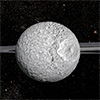 Saturn's smallest major moon Mimas could be hiding an ocean beneath it's cratered body.
Saturn's smallest major moon Mimas could be hiding an ocean beneath it's cratered body.
Feb 7th, 2024
Read more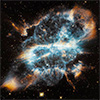 Astrophysicists have finally solved a 20-year-old astrophysical puzzle concerning the lower-than-expected amounts of the element sulphur found in planetary nebulae in comparison to expectations and measurements of other elements and other types of astrophysical objects.
Astrophysicists have finally solved a 20-year-old astrophysical puzzle concerning the lower-than-expected amounts of the element sulphur found in planetary nebulae in comparison to expectations and measurements of other elements and other types of astrophysical objects.
Feb 7th, 2024
Read more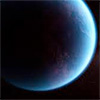 A carbon monoxide runaway gap identified in the atmospheres of Earth-like planets can help expand the search for habitable planets. This gap, identified through atmospheric modeling, is an indicator of a CO-rich atmosphere on Earth-like planets orbiting Sun-like stars.
A carbon monoxide runaway gap identified in the atmospheres of Earth-like planets can help expand the search for habitable planets. This gap, identified through atmospheric modeling, is an indicator of a CO-rich atmosphere on Earth-like planets orbiting Sun-like stars.
Feb 6th, 2024
Read more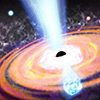 Black holes not only existed at the dawn of time, they birthed new stars and supercharged galaxy formation, a new analysis of James Webb Space Telescope data suggests.
Black holes not only existed at the dawn of time, they birthed new stars and supercharged galaxy formation, a new analysis of James Webb Space Telescope data suggests.
Feb 6th, 2024
Read more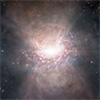 Theoretical predictions have been confirmed with the discovery of an outflow of molecular gas from a quasar when the Universe was less than a billion years old.
Theoretical predictions have been confirmed with the discovery of an outflow of molecular gas from a quasar when the Universe was less than a billion years old.
Feb 1st, 2024
Read more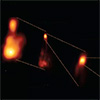 Astronomers recently resolved the jet base of an evolving jet of plasma at ultra-high angular resolution.
Astronomers recently resolved the jet base of an evolving jet of plasma at ultra-high angular resolution.
Feb 1st, 2024
Read more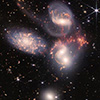 If cold dark matter theories are correct, Webb Space Telescope should find tiny, bright galaxies of early universe.
If cold dark matter theories are correct, Webb Space Telescope should find tiny, bright galaxies of early universe.
Jan 31st, 2024
Read more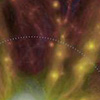 hope to better understand intricate mechanisms behind the evolution of galaxies, which travel through a 'cosmic web' of different environments during their lifespans.
hope to better understand intricate mechanisms behind the evolution of galaxies, which travel through a 'cosmic web' of different environments during their lifespans.
Jan 30th, 2024
Read more